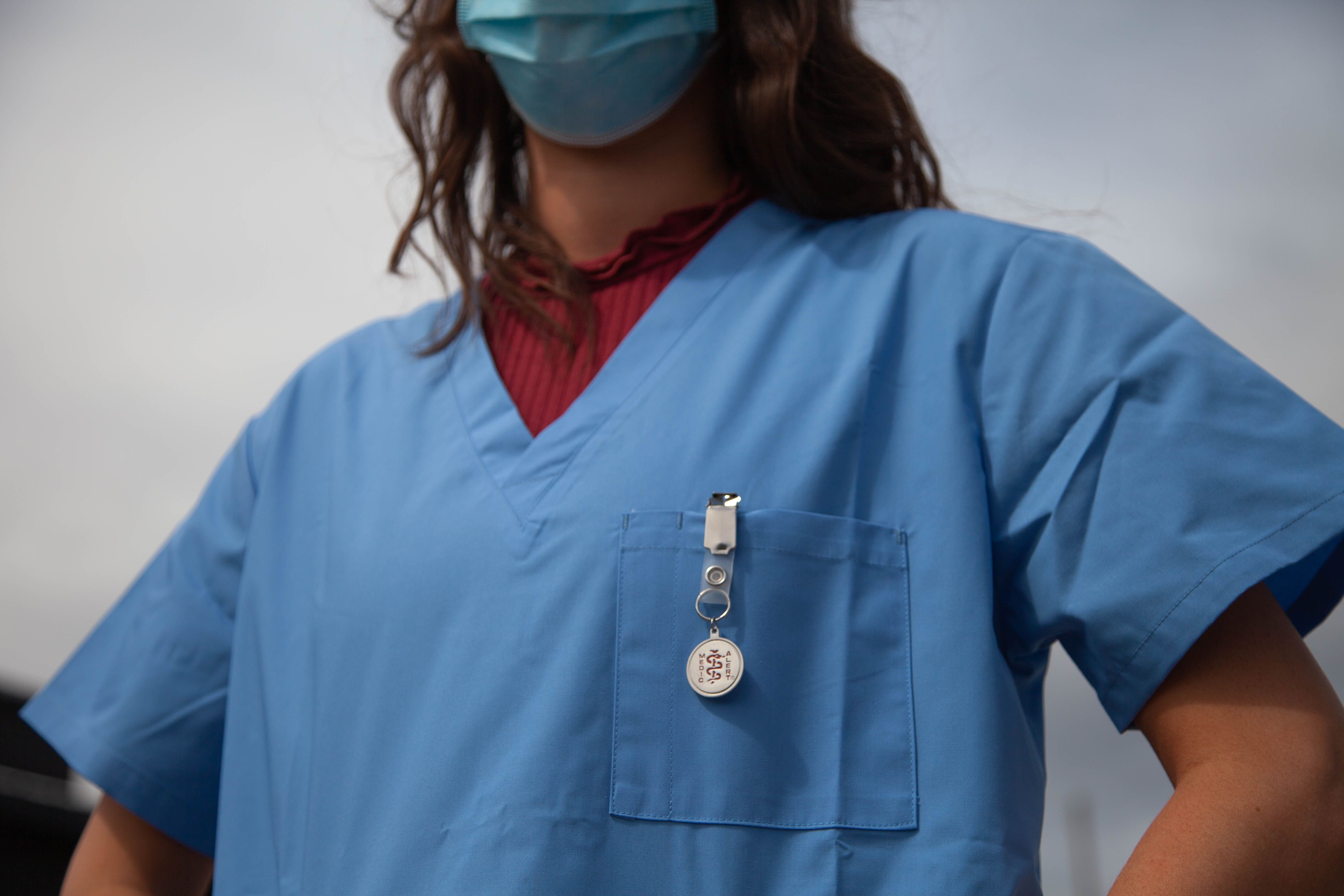Summary of employment legislation & mandatory training relevant to doctors in training.

Employment legislation
Employment legislation
Legislation
Important employment legislation in Ireland
There are various pieces of legislation relevant for doctors working in Ireland. During your on-site induction, you should receive the following:
• Information about your position, which may be in the form of a job description
• Your contract of employment see an example contract (PDF)
https://www.hse.ie/eng/staff/resources/hr-circulars/hrcirc01720172.pdf
• Your rate of pay and hours of work
• Your leave entitlements (your entitlement to annual leave, parental leave, maternity leave, and sick leave)
• Your terms and conditions of employment (governed by the Terms of Employment (Information) Act, 1994)
There are three main pieces of legislation that are relevant to terms of employment:
- National Minimum Wage Act, 2000: provides for an enforceable national minimum wage.
- Payment of Wages Act, 1991: gives employees the right to a payslip showing their gross wages and details of any deductions.
- Minimum Notice and Terms of Employment Act, 1973: sets out the amount of notice you are entitled to prior to a termination of employment.
You can read the full texts of all acts at irishstatutebook.ie,
learn more about employment legislation in Ireland at oireachtas.ie, and
learn more about employment in Ireland at citizensinformation.ie.
Payroll guide
The HSE’s payroll department is split into a number of geographic payroll areas. Your payslip will show which area you are working in. As an NCHD, you may move on a regular basis between HSE or HSE-funded hospitals and therefore may need to move payroll areas.
Learn more about dealing with Revenue during rotation.
Pension
Anyone joining the public service for the first time or returning to the public service on a new contract after a break of more than 26 weeks from their previous post will be enrolled on the Single Public Service Pension Scheme. The rules of the scheme are set out in the Public Service Pensions (Single Scheme and Other Provisions) Act 2012.
Learn more about pensions and the pension scheme. www.healthservice.hse.ie/staff/pensions
Working hours
Working hours & leave entitlements
Your working hours and leave entitlements (annual leave, parental leave, maternity leave, and sick leave) should be outlined in your contract. There are several pieces of legislation applicable to these.
• Organisation of Working Time Act, 1997: regulates various employment conditions including maximum working hours, night work, annual leave, and public holiday leave.
• Organisation of Working Time (Records) (Prescribed Form and Exemptions) Regulations, 2001: ensures that employers keep records of the number of hours employees work on a daily and weekly basis, the amount of leave granted to employees in each week as annual leave or as public holidays, and details of the payments in respect of this leave. Employers must also keep weekly records of employees’ starting and finishing times.
• Maternity Protection (Amendment) Act 2004: outlines the entitlements for employees during maternity leave.
• Paternity Leave and Benefit Act 2016: outlines the entitlements for employees accessing paternity leave.
• Adoptive Leave Act 2005: outlines the entitlements for employees accessing adoptive leave.
Learn more and read the full texts of all acts at irishstatutebook.ie .
Part-time employees
The Protection of Employees (Part-Time Work) Act, 2001 prevents discrimination against part-time workers.
Less than full time working
Less than full-time (LTFT) training
Did you know...?
It is possible for postgraduate trainees enrolled on an accredited postgraduate training programme to access less than full-time training or, in some instances, training in geographical locations more suited to their personal circumstances, while continuing to attain the required competencies and range of experience. These flexible training options for trainees include:
• Job sharing
• The NDTP National Supernumerary Flexible Training Scheme
• Post reassignment
Job-sharing
Job-sharing options are available across postgraduate training bodies. Job-sharing arrangements can be 50% or 60% of full-time, depending on the agreement between the clinical site and training body. NDTP provides funding for arrangements in cases where two trainees are working 60%. To express your interest in a job-sharing arrangement, please contact your medical training body.
NDTP National Supernumerary Flexible Training Scheme
The NDTP Supernumerary Flexible Training Scheme funds up to 32 concurrent participants at 50% time. The scheme is open to NCHDs from year two of basic specialist training (BST) onwards. The scheme allows NCHDs to continue their training in a more flexible manner for a set period. Trainees may need this flexibility for personal reasons such as, but not limited to:
• Caring responsibilities (for example, caring for a child or elderly relative)
• Personal family circumstances
• Health reasons
Trainees must be enrolled in a training programme under the auspices of a postgraduate medical training body recognised by the Medical Council. The HSE National Supernumerary Flexible Training Scheme guide provides details of the scheme and provides information for trainees, training bodies, and employers.
Learn more about the scheme and download the guide. www.hse.ie/eng/staff/leadership-education-development/met/ed/flex/
Post reassignment
The post reassignment process was established to support trainees who have experienced a change in circumstances after commencing training and require a change to the agreed post or rotation. This process is managed by the postgraduate medical training body.
Fixed-term employees
Most NCHDs will be employed under a fixed-term contract. The Protection of Employees (Fixed Term Work) Act 2003 protects fixed-term employees by ensuring that they cannot be treated less favourably than comparable permanent workers and that employers cannot continually renew fixed-term contracts.
Safety & equality at work
The following legislation ensures safety and equality in the workplace:
• Safety, Health and Welfare at Work Act 2005: describes the responsibilities of both employees and employers to ensure safety at work.
• Employment Equality Acts 1998–2015: prohibits discrimination in a range of employment-related areas. The prohibited grounds of discrimination are gender, civil status, family status, age, race, religion, disability, sexual orientation, and membership of the Traveller community. It also places an obligation on employers to prevent harassment in the workplace.
Dignity at work
As a healthcare worker in the public health service, you have the right to work in a safe environment that is free from bullying, harassment, and sexual harassment. You also have a duty to treat others with dignity and respect. The Dignity at Work Policy for the Public Health Service document provides more details on this. As a HSE employee, you must complete the Dignity at Work module on HSELanD.
Learn more about dignity at work (PDF). www.hse.ie/eng/staff/resources/hr-circulars/dignity-at-work-revised-policy-2022.pdf
Other legislation
Safety & equality at work
The following legislation ensures safety and equality in the workplace:
• Safety, Health and Welfare at Work Act 2005: describes the responsibilities of both employees and employers to ensure safety at work.
• Employment Equality Acts 1998–2015: prohibits discrimination in a range of employment-related areas. The prohibited grounds of discrimination are gender, civil status, family status, age, race, religion, disability, sexual orientation, and membership of the Traveller community. It also places an obligation on employers to prevent harassment in the workplace.
Dignity at work
As a healthcare worker in the public health service, you have the right to work in a safe environment that is free from bullying, harassment, and sexual harassment. You also have a duty to treat others with dignity and respect. The Dignity at Work Policy for the Public Health Service document provides more details on this. As a HSE employee, you must complete the Dignity at Work module on HSELanD.
Learn more about dignity at work (PDF). www.hse.ie/eng/staff/resources/hr-circulars/dignity-at-work-revised-policy-2022.pdf
Other standards and codes
Professional standards
The Medical Council’s Guide to Professional Conduct and Ethics for Registered Medical Professionals sets out the principles of professional practice that all doctors registered with the Medical Council of Ireland are expected to follow. Professionalism is at the core of the patient-doctor relationship; it is fundamental for patient safety and the delivery of high-quality health care. The guide provides guidance to doctors on a wide range of scenarios which could arise over the course of their professional careers. It also clarifies for patients the standards of care they should expect from their doctor.
Download the guide (PDF).
Dress code
You should follow any dress code in place at the hospital where you work. Whether or not a code exists, we recommend you dress professionally.
• A smart, professional image should be projected by ensuring clothes are well maintained and adhere to infection prevention and control guidelines.
• Avoid wearing casual clothing (for example, ripped jeans or leggings) or revealing clothing.
• Fingernails should be kept short and clean. Nail varnish and false nails are not permitted under the hand hygiene policy.
• Long hair should be tied back while undertaking clinical activities.
• Jewellery such as rings and watches should be removed when undertaking clinical activities, as these can cause injury to patients and do not confirm with the hand hygiene policy. A single plain ring band (such as a wedding ring) may be worn.
• Footwear should be clean and well maintained. It should be practical and suitable for the workplace. Footwear such as sandals, flip-flops, and crocs should not be worn.
• Ties, if worn, should be tucked in for all clinical activity.
• To facilitate good hand and forearm hygiene, you should roll up long sleeves or wear short sleeves and remove any jewellery (a single plain ring band may be worn).
• A plastic apron should be worn where exposure to blood and/or body fluids is anticipated.
• Personal protective equipment (PPE) should be worn when coming into contact with a patient in an area where transmission-based precautions (contact, droplet, or airborne) are in place.
Training
HSELanD
HSELanD is the Health Service Executive’s national online learning and development portal. Many of your mandatory training sessions can be accessed here. You will need to create an account to gain access to the online sessions.
Learn more about HSELanD and register an account. www.hseland.ie
Mandatory training
The HSE deems some employee training mandatory to ensure the safe delivery of its services. You will have a specific list of mandatory training you must complete as part of your employment. The table below has been developed to help you identify what training you should complete, where you can complete it, how often you should seek re-certification, and approximately how long it should take to complete. While this is not a complete list, it does include the main training requirements for NCHDs.
This information is provided as a guide only. Training requirements can vary from clinical site to clinical site as well as within a given specialty. Delivery methods for mandatory training may also differ by clinical site. In many cases, training can be completed on the HSE’s training platform, HSELanD. In other instances, training will be delivered as a classroom or practical session. Once training is complete, please ensure you upload your training certificate to your NER account.
Mandatory training table
Mandatory Training Table
Mandatory training, approximate duration, delivery method (on-site/online)
Recertification period
Who it’s for (interns, senior house officers, registrars, senior registrars, specialist registrars)
Advanced Cardiovascular Life Support (ACLS) Course, 2 days, on-site/external provider
Every 2 years
All NCHDs carrying the cardiac alert bleep as well as all NCHDs in cardiology, anaesthetics, and emergency medicine
Advanced Paediatric Life Support (APLS) Course, 2 days, on-site session/external provider
(site-specific training for Neonatal Resuscitation Programme (NRP) will apply)
Every 4 years
NCHDs in paediatric hospitals or departments (confirm with your MMM or clinical supervisor)
Basic Life Support (BLS) Course, 3 hours, on-site session
Every 2 years
All
Children First, 1.5 hours, online at www.hseland.ie
Every 3 years
All
Cyber Security Awareness, 15 minutes, online at www.hseland.ie
Every year
All
Data Protection (GDPR), 30 minutes, online at www.hseland.ie
N/A
All
Fire Training, half-day, on-site session or online session
Every 2 years
All
Haemovigilance Training, 1 hour, online at NHS UK learnPro www.nhs.learnprouk.com
Every 2 years
All
Hand Hygiene, 30 minutes, online at www.hseland.ie
Every 2 years
All
INEWS/IMEWS/PEWS/EMEWS, 1 hour (INEWS) 1 hour (IMEWS),
1. Irish National Early Warning System (INEWS) V2:Doctor Focus
2. Irish Maternity Early Warning System (IMEWS) www.hseland.ie
3. Paediatric Early Warning System (PEWS) and Emergency Medicine Early Warning System (EMEWS), on-site session
Advised every 3 years
All (except pathology)
– PEWS certification as relevant to your specialty
Management of Actual/Potential Aggression (MAPA), 1 day, on-site session
Every 2 years
Psychiatry only
Mental Health Act 2001, 2 hours, online at www.hseland.ie
N/A
Psychiatry only
Open Disclosure, 45 minutes (module 1) 40 minutes (module 2),
1. HSE Open Disclosure: Module 1: Communicating effectively through Open Disclosure
2. HSE Open Disclosure: Module 2 - Applying Principles to Practice, www.hseland.ie
Every 3 years
All
Patient Handling, 1 hour (theory) 3 hours (practical),
Theory: Manual Handling and People Handling e-learning Theory Module at www.hseland.ie Practical: On-site session
Every 3 years
All
Radiation Protection, 1 day, on-site session
N/A
Confirm with your MMM, clinical supervisor, or radiation protection officer
Introduction to sepsis management for adults including maternity, 1 hour, online at www.hseland.ie
Advised every 3 years
All NCHDs working in acute care settings involved in the early recognition and treatment of sepsis in both the pregnant and non-pregnant adult.
Induction checklist
You should receive a full induction 24 to 48 hours before your start date.
During this induction, you should have:
o Received your personnel number
o Received your identity badge
o Received and signed your contract (with review of pay scale)
o Met your assigned line manager or supervising consultant
o Received technology login details and operating skills in:
o Radiology
o Access and use of systems to order tests (for example, the laboratory)
o Local electronic patient record (EPR) or online medical record repositories
o Discharge summary
o Handover systems, where available
o Pharmacy systems, where available
o Received a work email address
o Received library access
o Received a site tour of NCHD facilities including rest space, on-call rooms, administrative area, lockers, canteens, educational space, etc.
o Received specific information such as:
o Indemnity systems and coverage
o Haemovigilance
o Local cardiac arrest procedures and training schedule
o Coroners contact and local policies
o Access to scrubs
o Met other team members and department colleagues, such as educational leads and administrators, Medical Manpower Department manager, and NCHD support officers
o Received a schedule of teaching:
o Further induction programmes and dates
o Weekly hospital-wide conferences
o Research, audit, and quality improvement (QI) resources and support



